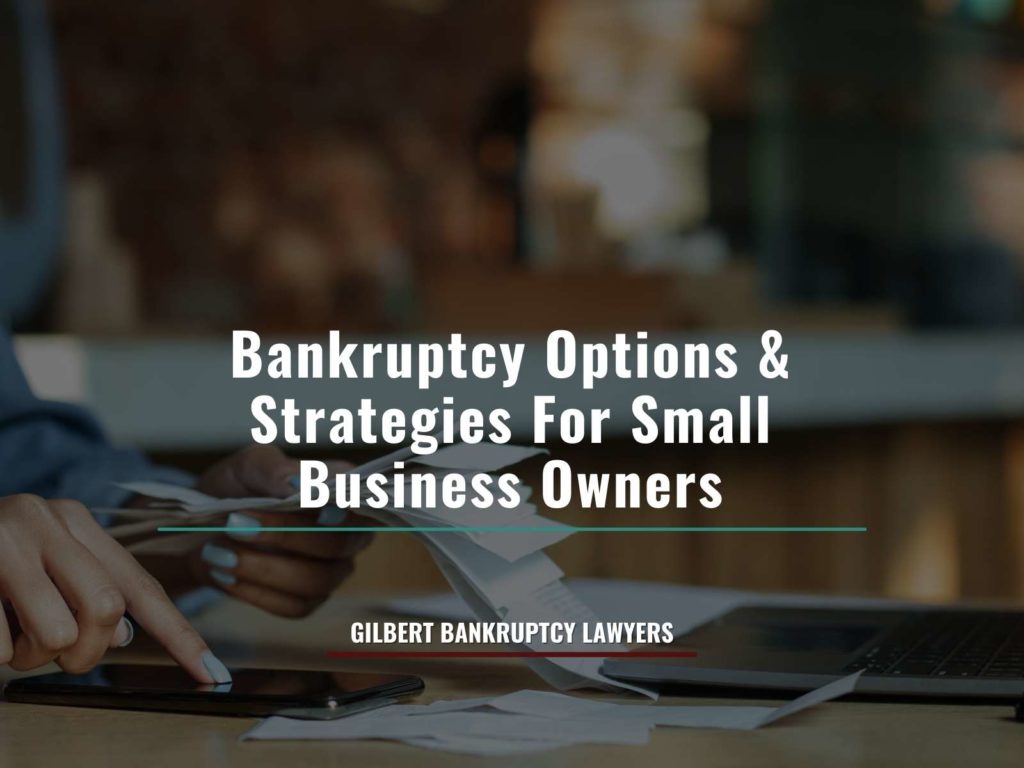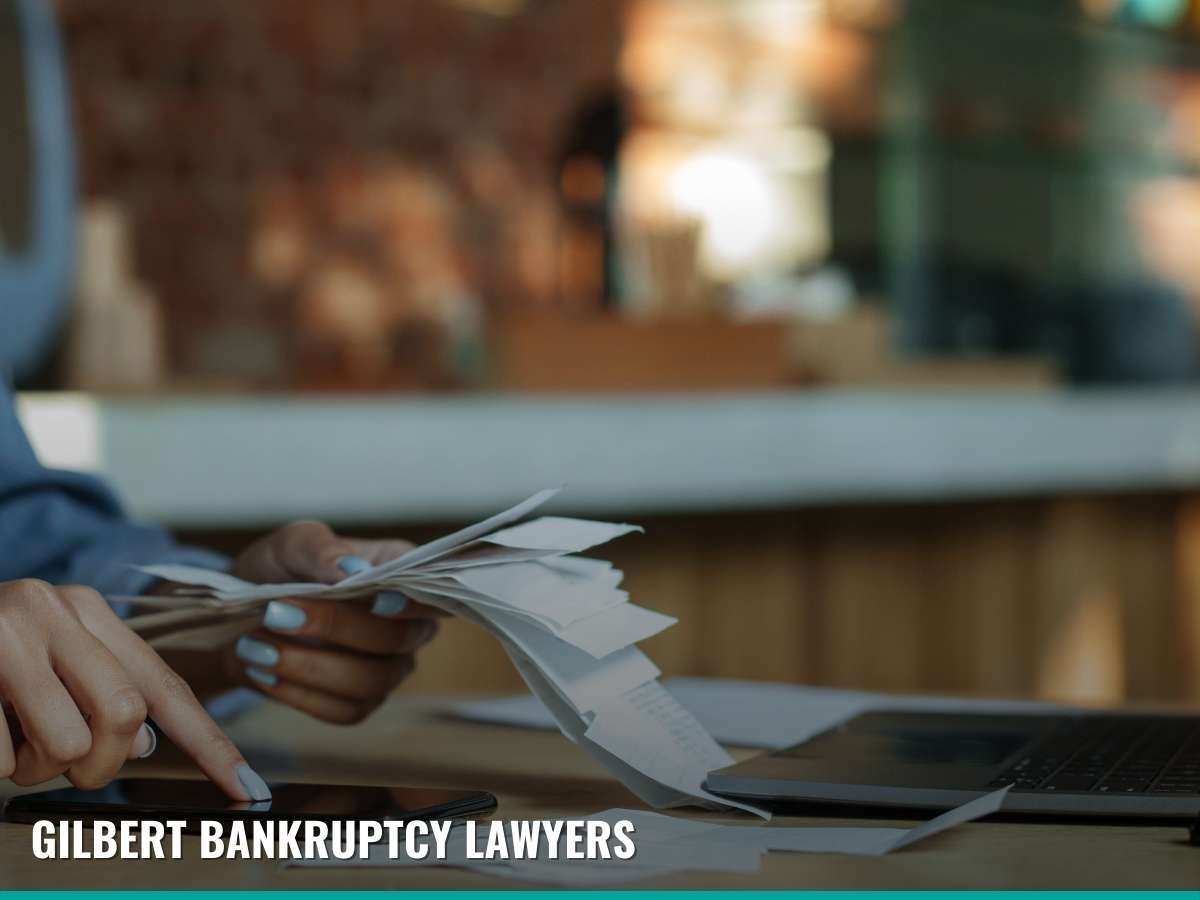Bankruptcy for small businesses depends on ITS STRUCTURE & How much debt you own
If you own a small business, you probably want to know whether bankruptcy will help to continue your business or not. The answer depends on certain factors like how much debt you own and what structure your business has.
Not every business entity can benefit from each bankruptcy type, which is why you should consult with a Gilbert Bankruptcy Attorney with enough experience in filing small business cases. You can also consider the following options to get a brief introduction about bankruptcy for small businesses.
Bankruptcy Alternatives for Sole Proprietors that own Small Businesses
You and your company are the same if you’re the sole proprietor. Both will be part of the bankruptcy filing, and for that case, you have some options like filing for Chapter 7 Bankruptcy or filing for Chapter 13.
Chapter 7 Bankruptcy for Sole Proprietors
Most sole proprietors use Chapter 7 after their business close, but it’s not always the case. Chapter 7 can erase both personal debts and qualifying business, therefore, it can give the debtor a fresh start.
The disadvantage of this option is that all business and personal properties become part of the bankruptcy state. However, you won’t lose everything because you can keep “exempt” assets like household goods, a retirement account, and a small amount of the items required in your profession.
Keep in mind that you could lose property in Chapter 7 if you have a sizable estate, including the actual business. Always consider contacting a Gilbert Bankruptcy Lawyer for help.
Service-Only Business in Chapter 7
Your business might be safe in Chapter 7 if you work on your own, for example, you’re a freelance worker or a handyman. The trustee can’t sell your service or force you to work somewhere else in this case. Besides, some trustees can let you continue working if you have liability insurance.
Chapter 13 or Chapter 11, Subchapter V for Sole Proprietors
Consider filing for Chapter 13 bankruptcy if you want to continue operating a business. Just make sure that your business has enough cash flow to meet the monthly payments.
This option works well if you need more property to run your company, especially if the Chapter 7 trustee can sell your business.
This benefit has a downside though. You have to pay creditors an amount equivalent to the worth of your nonexempt property through the repayment plan. You also have to demonstrate that you have enough self-employment income to support the bankruptcy claim.
You can also get help with Chapter 13 bankruptcy if your company is closed and you don’t meet the requirements for Chapter 7.
Bankruptcy Alternatives for Small Business Partnerships & Corporations
With a partnership or corporation it is always better to file for Chapter 11 bankruptcy because Chapter 7 has many pitfalls. Consider the following benefits and downsides before choosing a bankruptcy option.
Benefits of Chapter 7 in a Small Business Partnership or Corporation
Business owners must liquidate the company acquisitions and allocate the proceeds to creditors when the business closes. It can be easier to use Chapter 7 Bankruptcy in this case if the business owns a considerable amount of property. This way, the company doesn’t have to deal with the assets. The responsibility would go on the Chapter 7 bankruptcy trustee.
This alternative can also prevent aggrieved creditors from claiming fraud.
Problems of Chapter 7 for Small Business Partnership or Corporation
Corporations and Small Business Partnerships do not qualify for debt discharged in Chapter 7. If the case concludes and the business closes, the debts will remain. This shouldn’t be a problem because creditors can’t collect debts from a nonexistent company, but they can collect from individuals privately liable for company debts (for example, small business partners).
Filing a business Chapter 7 case won’t erase the partners’ personal obligation to pay the business’s bills, and the Chapter 7 trustee can consider the partners’ assets for payment.
Also, creditors can start an alter ego litigation once the corporation files for bankruptcy in Federal court. In that case, a Gilbert Bankruptcy Lawyer is necessary to get a better outcome.
Personal Chapter 7 after a Business Closure
You can wipe out personal liability for a business debt by filing a Personal Chapter 7, especially if your business closes. The nonexempt personal property could be in danger, but if your business debt exceeds the other debts, you won’t have to pass the Chapter 7 means test.
Chapter 11, Subchapter V for Small Business Partnerships & Corporations
Only individuals and sole proprietors qualify for Chapter 13, so small business partnerships and corporations that want to stay open and restructure debt must look to Chapter 11. This option allows companies to continue working while paying less toward debt.
Contact a Gilbert Bankruptcy Law Office for assistance
Filing for bankruptcy is complicated, and most of the time, a bankruptcy lawyer must file the case. That’s why we recommend you contact Gilbert Bankruptcy Lawyers to receive professional assistance and expert representation. Whether you need help with your business or personal debts, we are ready to help you! Contact Gilbert Bankruptcy Lawyers today!
Gilbert Bankruptcy Lawyers
Office: 480-448-9800
Email: info@myazlawyers.com
Website: https://gilbertbankruptcylawyers.com

